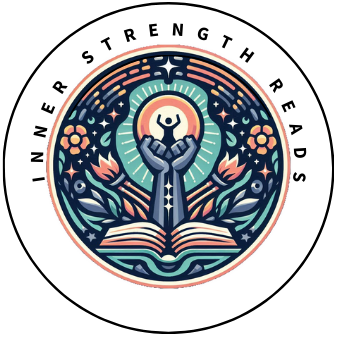
Imagine your brain like a muscle that can get stronger with the right exercises. That’s the essence of Carol S. Dweck’s work in ‘Mindset: The New Psychology of Success.’ She dives into the concept that a person’s mindset can set the stage for achievement. Whether you’re tackling a new job or learning a new skill, having a growth mindset can make all the difference.
A growth mindset is all about believing that you can improve and get better through dedication and hard work. It’s like planting seeds in a garden – with time and effort, those seeds can grow into something amazing. The quote, ‘Becoming is better than being,’ really captures this idea, highlighting the journey of development over any outcome.
Having this mindset reshapes how you handle setbacks. Instead of seeing failure as a dead end, it becomes a stepping stone on your way to success. It’s like taking a different path when you hit a roadblock – although hard, it’s still a way forward.
Think about those times when you’ve felt stuck or doubted your abilities. With a growth mindset, those moments become opportunities for learning and growth, rather than obstacles. You’re not locked into who you are today, and that’s a pretty empowering idea.
Applying this to real life can be simple. Start by switching ‘I can’t do it’ with ‘I can’t do it yet.’ Watch how this small change shifts your perspective and opens doors to possibilities. By embracing the mindset that you are always becoming, you give yourself a chance to grow beyond your current limitations.
Building Systems Over Goals: The Roadmap to Habits and Success
Setting goals is great, but how you get there matters even more. James Clear’s ‘Atomic Habits‘ lays it out clearly: it’s your everyday systems that really make the difference. Instead of focusing obsessively on end goals, it’s more about the steps and routines that lead you there. These systems are like your own personal GPS leading you through the journey.
You know the quote, ‘You do not rise to the level of your goals. You fall to the level of your systems’? It gets to the heart of why sometimes aiming high isn’t enough. Take it like this: if your goal is to run a marathon, the daily runs – no matter how short – are what prepare you to cross that finish line. Creating consistent patterns in your life can silently propel you toward your ambitions without even realizing it.
Start by identifying small habits that can build over time. Let’s say you’re trying to become more productive. Something as simple as setting a ‘power hour’ each day to tackle your most challenging task can support that larger objective. These bite-sized decisions stack up, changing your environment and, ultimately, you.
Live examples can really help visualize this. Think about athletes or successful entrepreneurs who’ve made it. Their secret sauce isn’t some magical burst of energy but a laid-back, reliable routine they stick to. When their systems are tuned and ready, they naturally move toward success without stressing themselves out over each bit of progress.
Crafting these systems requires a bit of planning and a lot of flexibility. Stay patient. Test out different routines till you find out what clicks for you. Remember, it’s all about adjusting those sails rather than drifting aimlessly. Embrace the process, and you’ll find yourself leveling up before you know it.
Harnessing the Present: The Power of Now for a Fulfilling Life
Living in the moment isn’t just some zen mantra; it’s a powerful tool for peace and focus. Eckhart Tolle’s ‘The Power of Now‘ brings this idea to the forefront, reminding us that now is all we’ve got. Everything else is either in the past or yet to come, and getting caught up in them means losing touch with what’s right in front of us.
Consider Tolle’s advice: ‘Realize deeply that the present moment is all you ever have.’ It emphasizes not letting the worry of future problems or past mistakes weigh you down. Life happens right here, right now. Focusing on the present doesn’t mean ignoring responsibilities; it’s about centering yourself amid chaos.
Bringing this mindfulness into everyday life might seem daunting, but it can start with little things. Try setting aside a few minutes each day to close your eyes, breathe deeply, and soak in your surroundings. Whether sipping your morning coffee or going for a walk, intentionally savor these moments. This practice helps ground you and nurture a sense of appreciation.
Even when the storm of deadlines and obligations swirls around, mindfulness acts like your personal eye of the storm. It can declutter your mind, helping you prioritize and tackle what’s important without feeling overwhelmed. Over time, you’ll notice a change not just in how you view the world, but how you react to it.
Spiritual enlightenment, as Tolle suggests, doesn’t have to be an out-of-reach concept. It’s about freeing yourself from the shackles of incessant thinking and truly connecting with the life unfolding right in front of you. Once you begin to live more mindfully, you’ll tune into the joys of the present, finding more fulfillment in your daily experiences.
Perseverance and Routines: Essential Tools for Achieving Effectiveness
Success isn’t a sprint. It’s more like a marathon, requiring both energy and endurance. Angela Duckworth’s insights in ‘Grit: The Power of Passion and Perseverance‘ underscore that sticking with it often outweighs raw talent in leading us to our goals. While enthusiasm can spark action, it’s the long haul that makes the real difference.
That thought resonates with her quote, ‘Enthusiasm is common. Endurance is rare.’ This mindset pushes you to dig deep when times get tough, helping you through those moments when it feels easier to just give up. It’s about hanging in there, even when a project stretches longer than expected or when early results aren’t booming.
Stephen R. Covey also talks about a similarly impactful idea in ‘The 7 Habits of Highly Effective People.’ The way we frame challenges often defines how we tackle them. “The way we see the problem is the problem” nudges us to alter our perspective to create change. It’s about owning our setbacks as stepping stones rather than barriers.
Developing endurance isn’t an overnight thing—it’s like building a muscle. As with exercise, you start small, like finishing that tough project or sticking with that fitness plan one more day than you did yesterday. Keeping to consistent routines fosters resilience and plants determination even deeper within you.
So how do you deepen your grit and endurance? Keep showing up, day after day. Even when motivation runs low, routines can carry you through. Know that perseverance is like a quiet force; it may not shine the brightest, but it’s always there, subtly navigating you towards success. With a steady hand and a patient heart, you’ll find your way to achieving what’s truly important.

